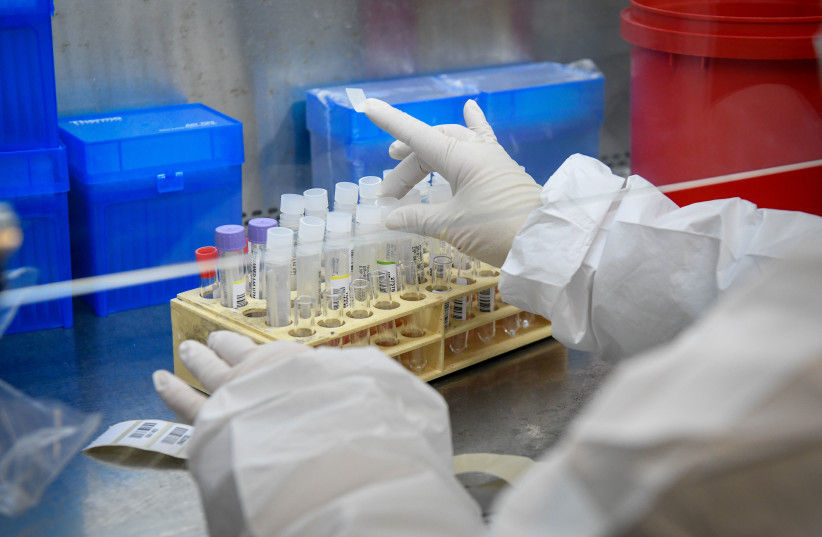The highly contagious COVID-19 Omicron variant has a large number of uniquely specific mutations that allow it to evade preexisting antibodies in the human body, accounting for its high rate of infection, new research carried out by the University of Minnesota has found.
The peer-reviewed study titled “Omicron SARS-CoV-2 variant: Unique features and their impact on pre-existing antibodies” was first published in the Journal of Autoimmunity and was produced by Kamlendra Singh, a professor in the University of Missouri College of Veterinary Medicine and assistant director of the college’s Molecular Interactions Core and Bond Life Sciences Center investigator.
The research team set out to gather data on the mutations found in the spike protein (S-protein) of the Omicron variant. An S-protein refers to a large structure projecting from the surface of the virus’s outermost layer, and they are most commonly associated with all forms of coronavirus cells.
The research team found an unprecedented number of mutations in the Omicron S-protein. They analyzed the available sequences of the virus along with the structural data on the spike protein to understand the possible impact that the high number of mutations could have on the binding of antibodies to the virus.
Antibodies allow the human body to fight off viruses that enter the system, preventing them from entering the immune system. While earlier in the COVID-19 pandemic it was thought that being infected with COVID-19, or being vaccinated against it, would provide enough antibodies to prevent reinfection, the Omicron variant has proved otherwise, as high amounts of people are being reinfected or infected despite being fully vaccinated.

Using complete sequences of the Omicron variant, the research team identified 46 signature mutations within the variant, 23 of which were completely unique and had not been identified in any of the earlier variants of the virus. Two of the mutations had first been recorded in the Delta or Delta Plus variant, which preceded Omicron by several months.
Of the 46 mutations found, 30 were identified in the S-protein, while the remainder were located elsewhere in the virus cell.
Having identified the unique mutations found in the Omicron variant, the team turned to researching whether they were responsible for the lack of antibody response against the variant.
Using a preexisting S-protein structure taken from the Protein Data Bank, one which would theoretically prevent the binding of antibodies to a virus, they worked to assess whether the Omicron mutations would similarly affect the COVID-19 S-protein, thus rendering antibodies ineffective.
Through this method, the team discovered that specific mutations create interference in the surface of the virus, preventing antibodies from binding to it, while others result in a complete loss of interaction between the antibodies and the virus, thereby rendering the antibodies ineffective against the highly mutated variant.
This suggested that preexisting immunization (whether from vaccination or previous infection) may no longer be able to provide optimal protection against the Omicron variant, allowing it to bypass antibodies and enter the immune system, the study said.
“The purpose of antibodies is to recognize the virus and stop the binding, which prevents infection,” Singh said. “However, we found many of the mutations in the Omicron variant are located right where the antibodies are supposed to bind, so we are showing how the virus continues to evolve in a way that it can potentially escape or evade the existing antibodies and therefore continue to infect so many people.”
